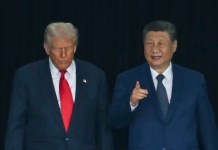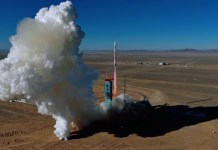India’s Modi government “failed to foresee” China’s aggression in the Himalayas, leading to the prolonged border standoff between Indian and Chinese troops in Ladakh, top Indian geostrategist claims.
The two Asian neighbors have been at loggerheads ever since China took over Tibet in the 1950s. China did not recognize the ‘McMahon Line’ dividing India and Tibet, as delineated by the 1914 Simla Accord.
After capturing Tibet, China started building a road through Aksai Chin which was claimed by India as eastern Ladakh. But like before, China was not legally bound by the Johnson-Ardagh Line of 1897 which put Aksai Chin inside Indian territory.
These differences led to the 1962 war in which China captured the disputed border areas in Ladakh and Arunachal Pradesh. While it withdrew from the eastern front, China maintained its position in the west, thus unilaterally defining what is called the Line of Actual Control (LAC).
Since then, the de facto border has witnessed multiple standoffs despite several bilateral agreements, such as in 1993, 1996, and 2013. In June last year, the two militaries had a violent face-off in the Galwan Valley, which killed 20 Indian soldiers. China later admitted to four casualties.
After a 10-month-long standoff, India and China decided to disengage in the Pangong Tso in February this year. While Corps Commander-level talks are on to withdraw troops from other friction points, chances of an early resolution of the conflict are slim.
‘India Gives & China Takes’
In an opinion piece written for Nikkei Asia, Brahma Chellaney has highlighted how the Chinese showed a friendly veneer to India while actively capturing the latter’s territory.
Chellaney states that last year’s skirmishes were a result of China taking advantage of India being distracted by the initial phase of the COVID-19 pandemic to infiltrate regions west of the LAC. The Indian forces discovered the situation in mid-summer when the snow started thawing in the mountains.
The author has also highlighted what can be seen as negligence on the part of the Indian leadership for not paying attention to the warning signs. Prime Minister Narendra Modi had been so focused on improving relations with China that he ignored reports of combat exercises and new military installations along the LAC, he claims.
“China’s aggression has cast an unflattering light on Indian PM Narendra Modi, who failed to foresee the aggression coming largely because he was focused on befriending China. Meeting President Xi Jinping 18 times over the previous five years, Modi was blinded to the various warning signs, including China’s combat exercises and new military installations along the Himalayan frontier,” Chellaney writes.
“Since China’s land grabs, the otherwise voluble Modi has been quiet, neither mentioning China by name in any of his public remarks nor acknowledging the loss of territories. Worse still, no army commander has been held accountable for the costly security lapses that resulted in India being caught napping. Nor did the defense minister accept moral responsibility and resign.”
In a way, this is reminiscent of Nehru’s disillusionments in the 1950s when in a bid to befriend another newly independent neighbor, he overlooked Chinese activities in Aksai Chin.
Chellaney believes the current leadership has not been held accountable for their failings. This non-admission of guilt has made them seek “full restoration of peace and tranquility in the border areas” without realizing the future implications of such demands.
The EurAsian Times recently ran an analysis that said how India in its attempt to get any sort of agreement might have given up its advantageous positions in Ladakh along the LAC.
While China holds commandeering positions at important points such as the Depsang Plains, Hot Springs and Gogra, India held key peaks south of the Pangong Tso — Magar Hill, Mukhpari, Gurung Hill, Rezang La, and Rechin La — which gave it a direct view of China’s Moldo Garrison.
During the 9th round of the China-India Corps Commander Level Meeting on January 24, both China and India agreed on disengagement. But this deal only discussed disengagement around the Pangong Tso, arguably the only advantageous position India held along the LAC.
Indian hopes for further disengagement seem to have turned to dust as it lost its only trump card. This seems to confirm what Chellaney calls “emboldening China’s intransigence.”
Beijing’s “10 miles forward, five miles back” strategy, as Chellaney describes it, talks about meeting “halfway.” But this halfway point, as depicted by the above examples, legitimizes Chinese incursions while making India give up its hard-fought territory.
Once Bitten Twice Shy?
Chellaney has also pointed out the Indian government is no longer responding to Chinese tricks and talking about “normalcy” after Beijing got what it wanted.
India has kept its reinforcement ready at the border and is on high alert, fearing another Chinese ploy while India battles its second wave of the pandemic.
A year after Himalayan clashes flared in response to China's stealth capture of vantage points in Indian Ladakh, the aggression persists, with PLA forces well dug in. In fact, with India preoccupied with battling Covid, China has raised the specter of springing further surprises.
— Brahma Chellaney (@Chellaney) May 5, 2021
The Print also reported that the Indian Army is focusing on ensuring that there are “adequate” troops to counter any Chinese threat.
Maintaining a clear anti-China stance, India has excluded Chinese companies from its 5G wireless network trials and has not welcomed China’s official aid to combat the second wave.
Nevertheless, looking into the future, Chellaney warns that China’s build-up, which includes new military infrastructure and forward deployment of artillery, missiles and bombers, hints at an approaching war. At the least, the LAC will become a permanent hot border.
This will stretch India’s resource capability while China strengthens its relationship with Pakistan. Meanwhile, China can also take advantage of the border distraction to consolidate itself in the Indo-Pacific.
Chellaney is hoping that like the 1962 war, the current show of aggression will break any illusion of friendly relations with an uncompromising neighbor. Hopefully, the lesson will stick.
Chinese action might prove to be more counterproductive this time as India has started growing closer to the US-led QUAD bloc, an informal security grouping that stands against the Chinese domination of the Indo-Pacific.
Meanwhile, China’s state-owned newspaper Global Times has disparaged Chellaney as an “anti-China strategist,” claiming that he has distorted the truth to “mislead the Indian public.”




